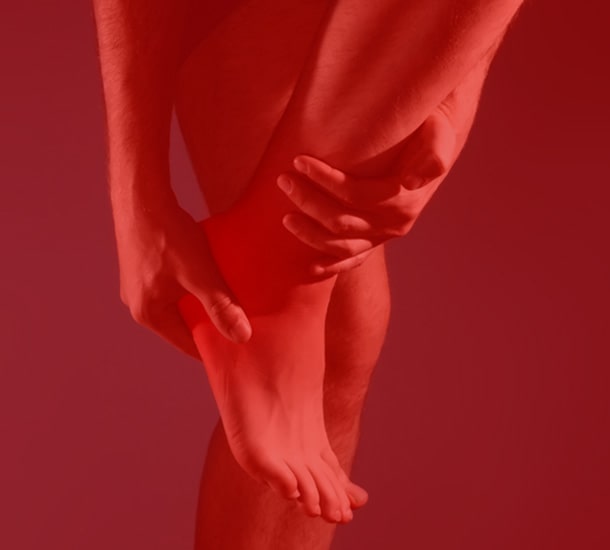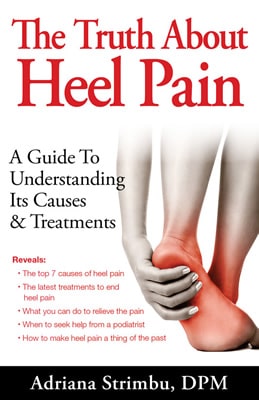Connect With Us
Blog

Toenail fungus, or onychomycosis, is an infection caused by fungi that thrive in warm, moist environments, such as sweaty shoes or near public pools. It often starts with a small white or yellow spot under the tip of the nail and can spread deeper, leading to thickened, discolored, and brittle nails. Symptoms include nail discoloration, including yellow, brown, or white, as well as nail thickening, crumbling edges, and sometimes a foul odor. The affected nails may become painful or difficult to trim over time. A podiatrist can diagnose toenail fungus by examining the nail and may take a sample for lab testing to confirm the infection. Treatment options range from topical antifungal creams and medicated nail lacquers to oral antifungal medications. Severe cases may require partial or complete nail removal. If you are dealing with this condition, it is suggested that you make an appointment with a podiatrist for evaluation and treatment.
If left untreated, toenail fungus may spread to other toenails, skin, or even fingernails. If you suspect you have toenail fungus it is important to seek treatment right away. For more information about treatment, contact Adriana Strimbu, DPM of Complete Foot & Ankle Care. Our doctor can provide the care you need to keep you pain-free and on your feet.
Symptoms
- Warped or oddly shaped nails
- Yellowish nails
- Loose/separated nail
- Buildup of bits and pieces of nail fragments under the nail
- Brittle, broken, thickened nail
Treatment
If self-care strategies and over-the-counter medications does not help your fungus, your podiatrist may give you a prescription drug instead. Even if you find relief from your toenail fungus symptoms, you may experience a repeat infection in the future.
Prevention
In order to prevent getting toenail fungus in the future, you should always make sure to wash your feet with soap and water. After washing, it is important to dry your feet thoroughly especially in between the toes. When trimming your toenails, be sure to trim straight across instead of in a rounded shape. It is crucial not to cover up discolored nails with nail polish because that will prevent your nail from being able to “breathe”.
In some cases, surgical procedure may be needed to remove the toenail fungus. Consult with your podiatrist about the best treatment options for your case of toenail fungus.
If you have any questions, please feel free to contact our office located in Hallandale Beach, FL . We offer the newest diagnostic and treatment technologies for all your foot care needs.

Hammertoe is a deformity where the toe becomes bent at the middle joint, causing pain, corns, and difficulty wearing shoes. It often results from muscle imbalance, wearing ill-fitting footwear, trauma, or genetic factors. Risk of developing a hammertoe increases with age, arthritis, and certain foot shapes. When conservative treatments no longer relieve discomfort, surgery may be necessary to realign the toe and restore function. Recovery time varies but often includes rest, limited activity, and wearing special footwear until healing is complete. A podiatrist evaluates the severity of the deformity, guides the surgical plan, and supports rehabilitation for optimal results. If you experience persistent pain or difficulty walking due to hammertoe, it is suggested that you consult a podiatrist to discuss your treatment options.
Foot surgery is sometimes necessary to treat a foot ailment. To learn more, contact Adriana Strimbu, DPM of Complete Foot & Ankle Care. Our doctor will assist you with all of your foot and ankle needs.
When Is Surgery Necessary?
Foot and ankle surgery is generally reserved for cases in which less invasive, conservative procedures have failed to alleviate the problem. Some of the cases in which surgery may be necessary include:
- Removing foot deformities like bunions and bone spurs
- Severe arthritis that has caused bone issues
- Cosmetic reconstruction
What Types of Surgery Are There?
The type of surgery you receive will depend on the nature of the problem you have. Some of the possible surgeries include:
- Bunionectomy for painful bunions
- Surgical fusion for realignment of bones
- Neuropathy decompression surgery to treat nerve damage
Benefits of Surgery
Although surgery is usually a last resort, it can provide more complete pain relief compared to non-surgical methods and may allow you to finally resume full activity.
Surgical techniques have also become increasingly sophisticated. Techniques like endoscopic surgery allow for smaller incisions and faster recovery times.
If you have any questions please feel free to contact our office located in Hallandale Beach, FL . We offer the newest diagnostic and treatment technologies for all your foot and ankle needs.

Plantar fasciitis occurs when the thick band of tissue along the bottom of the foot becomes inflamed, often causing sharp heel pain, especially with the first steps in the morning. It can be caused by overuse, poor footwear, excessive standing, or foot structure issues. Symptoms include heel pain, tightness, and tenderness along the arch. Helpful exercises include toe lifts to strengthen the foot, towel stretches to improve flexibility, and heel raises to support the arch. A podiatrist can diagnose the condition, recommend custom orthotics, and guide treatment to reduce pain and prevent recurrence. If heel pain is affecting your daily life, it is suggested that you seek professional help from a podiatrist to begin healing, enabling an accelerated return to normal activity.
Plantar fasciitis can be very painful and inconvenient. If you are experiencing heel pain or symptoms of plantar fasciitis, contact Adriana Strimbu, DPM from Complete Foot & Ankle Care. Our doctor can provide the care you need to keep you pain-free and on your feet.
What Is Plantar Fasciitis?
Plantar fasciitis is the inflammation of the thick band of tissue that runs along the bottom of your foot, known as the plantar fascia, and causes mild to severe heel pain.
What Causes Plantar Fasciitis?
- Excessive running
- Non-supportive shoes
- Overpronation
- Repeated stretching and tearing of the plantar fascia
How Can It Be Treated?
- Conservative measures – anti-inflammatories, ice packs, stretching exercises, physical therapy, orthotic devices
- Shockwave therapy – sound waves are sent to the affected area to facilitate healing and are usually used for chronic cases of plantar fasciitis
- Surgery – usually only used as a last resort when all else fails. The plantar fascia can be surgically detached from the heel
While very treatable, plantar fasciitis is definitely not something that should be ignored. Especially in severe cases, speaking to your doctor right away is highly recommended to avoid complications and severe heel pain. Your podiatrist can work with you to provide the appropriate treatment options tailored to your condition.
If you have any questions please feel free to contact our office located in Hallandale Beach, FL . We offer the newest diagnostic and treatment technologies for all your foot and ankle needs.






